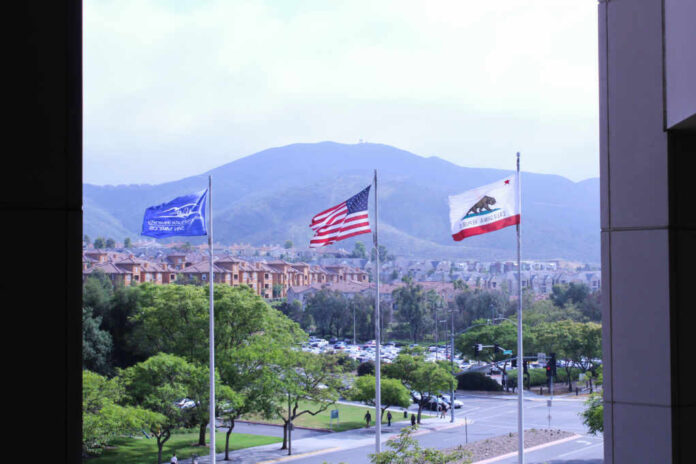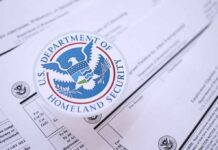
When a university in Los Angeles decides to treat the threat of immigration enforcement as a public emergency—invoking COVID-era remote learning protocols because of ICE activity—you have to ask: how far will American institutions bend to the anxiety and outrage machine?
At a Glance
- Cal State LA allows professors to move classes online due to fears of ICE raids and ongoing protests.
- The policy is a temporary, case-by-case adjustment, not a campus-wide shutdown.
- No ICE raids have actually occurred on campus, but the decision is driven by student fears and political pressure.
- Critics argue the move is a dramatic overreaction and undermines respect for law enforcement and the rule of law.
Cal State LA Turns COVID Playbook Into Immigration Panic Policy
California State University, Los Angeles—a public institution meant to foster critical thinking—has just handed professors carte blanche to move classes online, all because some students fear ICE might be in the neighborhood. This is not satire. University administrators are dusting off the same protocols used for an actual pandemic and applying them to the “threat” of lawful immigration enforcement. The official rationale? “Extraordinary circumstances” and “community fear.” The result? A campus experience that looks a lot like 2020, but this time the emergency is federal law enforcement, not a virus.
🚨 BREAKING: Fearing ICE raids, California State University Los Angeles shifts to ONLINE CLASSES and even allows faculty to work remotely.
WHAT ON EARTH?
The entire LA area is basically treating enforcing immigration law like COVID!
CLEARLY they know the jig is up. Tons and… pic.twitter.com/6eS5AIUcmA
— Eric Daugherty (@EricLDaugh) July 11, 2025
Let’s be clear: according to reports, no ICE agents have set foot on the Cal State LA campus. No armed raids through the library, no agents lurking in lecture halls. The only thing on campus is fear—stoked by weeks of protests, heated rhetoric, and a media ecosystem ready to amplify any whiff of “deportation panic.” Yet, the university’s solution is to make it easier than ever for students and faculty to stay home. Professors can move classes online whenever students express discomfort, and absences are excused for anyone who claims to feel unsafe. This is not a policy rooted in reality. It’s a reaction to feelings, not facts.
Watch a report: Cal State L.A. to allow online classes amid ICE raid fears
Campus Policy by Protest and Panic: Who’s Really in Charge?
The university’s own spokesperson, Erik Hollins, went on record explaining that these are merely “individual adjustments” within existing policy, done to support students and faculty facing “extraordinary circumstances.” If you think that sounds like bureaucratic double-speak, you’re not alone. The policy is temporary, not a blanket shift to remote learning, but it sends a clear message: if enough people are anxious—no matter the reason—campus operations can be bent, twisted, or abandoned outright.
This isn’t about education. It’s about capitulating to a political narrative. The loudest voices on campus and in the city demand that every institution treat immigration enforcement as a five-alarm fire, and university leaders are all too eager to oblige. The Archdiocese of San Bernardino even released Catholics from the obligation to attend Mass if they feared deportation—an extraordinary concession that set the tone for the wider community. Now, Cal State LA follows suit, teaching students that policy is made by panic and precedent, not prudence or principle.
Critics See a New Low: “This Is BS”—Law Enforcement Becomes a Campus Emergency
Let’s not mince words. Critics—like former Trump administration official Tom Homan—are calling the move “BS,” pointing out that there have been no ICE arrests at churches, let alone universities. The facts are straightforward: ICE’s increased activity in Los Angeles has been outside campus boundaries, targeting criminal offenders and fugitives, not classrooms full of undergraduates.
Supporters of the policy claim it’s about protecting vulnerable students, especially those who are undocumented or have undocumented family members. But what message does this send to the rest of the country? That following federal law is now a public health emergency? That education must yield to the political whims of the day? Once again, the irony is thick: the same institutions that claim to champion “diversity of thought” are first in line to shut down debate and cancel in-person learning at the first sign of resistance to their preferred narrative.
The Slippery Slope: From Pandemic Flexibility to Permanent Disruption
What happens the next time there’s a political protest, a controversial speaker, or a law enforcement operation nearby? The precedent is set: “extraordinary circumstances” can be invoked for any cause that stirs enough unrest. Cal State LA’s decision is not just about immigration enforcement; it’s about normalizing the idea that feelings and fears—not facts or laws—should dictate public policy. The short-term effect is fewer students and faculty on campus, less engagement, and another blow to the integrity of higher education. The long-term effect is far more troubling: a culture where the rule of law is optional, and public institutions bend to every manufactured crisis.

























